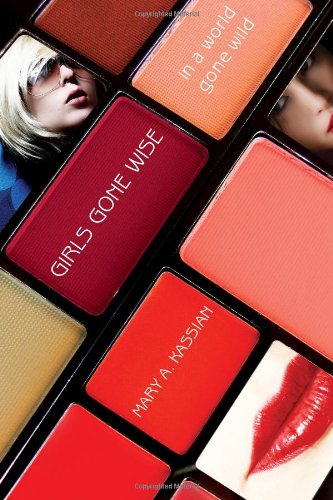
Girls Gone Wise in a World Gone Wild
JANE DOE HAS LOST HER LAWSUIT AGAINST “GIRLS GONE WILD”.
The 26-year-old woman sued the publishers of Girls Gone Wild, Mantra Films, for US$5 million. In the lawsuit, she claimed that she had not given consent to show her breasts to the Girls Gone Wild cameraman — the original video even has her saying “no” repeatedly. Then her top was pulled down by another patron at the bar, where the act was caught on film and later published in the GIRLS GONE WILD: SORORITY ORGY video. She didn’t know that she was in the video until one of her husband’s friends called to point it out a few years later.
All of this took place in May 2004, while a then 20-year-old “Jane Doe” was dancing on the bar at the (now defunct) Rum Jungle at Laclede’s Landing in St Louis, Missouri. The lawsuit was suing for damage to her reputation to the now mother of 2, and was originally filed in 2008. Can you believe it took two years for this thing to get to trial?
It took just 90 minutes for the jury to rule against the plaintiff. All parties agreed that consent was the pivotal issue. Jane Doe’s side said that her saying “no” directly to the camera does not give any consent at all, while the defense said that by continuing to dance for the camera and participate in the event did give implied consent to the activities.
The jury foreman said that the majority of the jury felt that consent was given by merely being present at the bar. “Through her actions, she gave implied consent. She was really playing to the camera. She knew what she was doing,” was the foreman’s statement.
Blogs and commentators across the web are finding it hard to believe that a woman saying “no” is also non-verbally granting consent… especially when Jane Doe wasn’t the one who pulled down her own top.
This isn’t the first time that consent has been at the center of a Girls Gone Wild lawsuit. In 2005, a Virginia Beach woman sued Girls Gone Wild and won over $61,000 when the court ruled that the woman’s verbal consent wasn’t enough to warrant filming her as Virginia state law requires written consent for use of an individual’s image in a commercial production. One would think that after the Virginia incident, Mantra Films would be a bit more careful about making sure that they had proper consent documentation taken care of.
Was Jane Doe breaking the law by being in a bar at 20-years-old? Was she there with a fake ID? Questions like these may not matter as she was over 18-years-old at the time – because of that, this case is a bit different than the 2004 case where a 17-year-old sued the makers and publishers of THE GUY GAME for filming that girl topless WITH that girl’s direct consent. That game was subsequently taken off the market due to the inclusion of the underage video footage. Interestingly, when Girls Gone Wild was sued over the exact same situation, where two 17-year-olds were filmed topless by cameramen and also given consent, they too lost their lawsuit as the jury in that case stated “knew what they were doing. The jury realized that there were no drugs, alcohol or coercion involved in what they did.”
So that’s two cases against Girls Gone Wild where the jury found for the filmmakers under the soon-to-be infamous “you knew what you were doing” defense. Fake IDs, consent forms incorrectly signed by minors, and even saying “no” are no match for a jury of your peers. Web Watch can see the next Girls Gone Wild court case, where the lawyer simply stands up and presents their entire defense as “Your Honor – her mouth was saying no, but her body was saying yes. The defense rests.” The whole defense being based on “actions speak louder than words”.
Sure, sometimes bad things happen if you’re in the wrong place at the wrong time… perhaps she and her friends should have just left and gone to a different bar before anything bad happened. Doesn’t make the court outcome any different, but that may have been what the jury was thinking when they came to their decision.
Something tells us that this case may be moving a bit higher than the St Louis Circuit Court. It really should.
